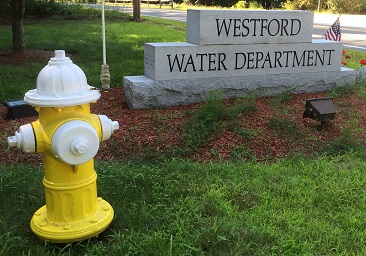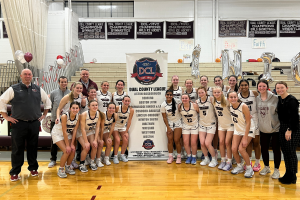Water quality at WA meets standards

Photo via Westford Water Department
May 13, 2016
After a flurry of recent news stories about lead in schools’ drinking water, students at WA are asking if the water in the school is safe to drink.
Recently, thirty-eight schools in the Boston area have been tested for lead, and tests have shown four have lead present in their water. Fountains have been closed and some removed to protect the students and teachers at the schools. The Massachusetts Water Resources Authority has given 100 million dollars to schools in the Boston area to replace the fountains with new ones.
Westford Academy’s water is connected to the town water, so the school gets the same amount of filtration. According to the Westford Water Department (WWD), which is responsible for supplying safe and high-quality drinking water, the lead level in the fountains are 0.003 mg/L. The maximum level recommended but the town of lead is 0.015 mg/L, so the water is safe.
High levels of lead in a person’s water can cause serious health issues, like brain damage in young children. The lead comes from materials and components from home plumbing and service lines. Some elements that get put into the drinking water are out of the water department’s control, such as some plumbing components. To decrease the amount of potential lead in someone’s house they could run the water for 30 to 2 minutes and then continue with further use.
The water department treats the water for multiple contaminants such as corrosion control, disinfection, removal of volatile organic compounds, and removal of iron and manganese. On top of all of these tests, the water department does regular tests for over one hundred different contaminations. If the tests performed prove to be harmful, the department would notify its customers immediately.
All drinking water contains small amounts of impurities. The groundwater naturally dissolves minerals from the earth and sometimes picks up animal or human activity such as some types of bacteria. These water imperfections do not cause a huge health risk for Westford because the water meets monitoring and reporting of the Safe Water Drinking Act and meets all Environmental Protection Agency (EPA) health standards. Based on a health interview by the EPA, Westford’s water quality is a 43 on a scale of 100.
“100% of Westford’s public drinking water is treated (filtered and disinfected). Our drinking water is regularly tested for a multitude of possible contaminants, and this information is provided to all of our customers annually in our Consumer Confidence Report,” said Mark Warren, Environmental Compliance Manager for the Westford Water Department. “Another advantage to our customers is that if there is a power outage you will still have water service. This is because our backup power service maintains the necessary pressure within the system.”
The Water Department filters and treats the water before it come to its customers; this ensures that the water quality is high and and that it tastes good. When the water is pumped from the ground, small quantities of rock, dirt, vegetation, and effects of human activity get into the water. Westford is a part of the Safe Water Drinking Act, which is where the water department treats its water to meet state and federal requirements for public drinking water.
According to the Westford Water Department, almost 75% of the residents receive water from the Department and the remaining 15% use private wells. Westford’s drinking water comes from the Merrimack River Basin aquifer which provides water to schools, businesses and Westford residences. Westford operates nine groundwater wells which later pump water to the Forge Village or Nutting Rd. treatment plant. The water is then pumped into five storage tanks and soon makes it to schools, homes, or businesses.
“We are required to produce safe water that meets State and Federal standards. Every month we provide the Massachusetts Department of Environmental Protection (MassDEP) with chemical addition and water quality reports. In addition, each year we provide our customers with a water quality report (the Consumer Confidence Report) so anyone can see the results of our regular testing,” said Warren.






